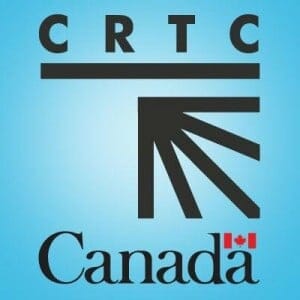Ottawa, Canada, 25 January 2018, CRTC
 On 25 January 2018 in Ottawa, Canadian Radio-television and Telecommunications Commission commonly known as CRTC took measures to reduce caller identification spoofing and to determine the origins of nuisance calls.
On 25 January 2018 in Ottawa, Canadian Radio-television and Telecommunications Commission commonly known as CRTC took measures to reduce caller identification spoofing and to determine the origins of nuisance calls.
The Canadian Radio-television and Telecommunications Commission (CRTC) is the governmental organization taking responsibilities of providing Canadians with secure technology and media. It makes sure people coming from all backgrounds whether educational, business or individuals using technology for personal usage, have access to secure connection to the world without comprising on the security. Hence, it ensures technology and internet without scams, spoofs and frauds. In this regard, recently CRTC took a strong initiative to tackle Robocalls ensuring the security of personal id to avoid scams and frauds.
Robocalls are basically fraudulent calls. These bogus calls are made by computerized auto-dialers, more often delivering a prerecorded message and sometimes operators at the other end. These calls are usually linked to telemarketing companies and political parties’ phone campaigns and sometimes false agendas against rival parties. Moreover, these calls easily jump in on cloud-based network services. Consequently, with advancement in cloud service technology, there are almost 2.5 billion robocalls reported every month according to the report by Federal Communications Commission (FCC). Though several measures were taken by the FCC, the Canadian government took a step forward by law enforcement to the cloud service providers.
According to CRTC “As caller ID spoofing provides anonymity, thereby facilitating illegal or fraudulent activities, Canadians are growing increasingly weary of receiving nuisance calls. Caller ID spoofing has become a significant problem with the introduction of cloud services as callers do not generally have the ability to alter the caller ID in legacy circuit-switched networks. Canadians are therefore no longer able to reliably trust that the caller ID is authentic and they are therefore not always certain of who is calling them. This impinges on the privacy of Canadians and exposes them to potential harm”.
The CRTC strictly states the cloud service providers to complete STIR (Secure Telephony Identity Revisited)/SHAKEN (Secure Handling of Asserted information using toKENs) by 2018. Thereby the commission expects its implementation by 31st March 2019 and states “TSPs will implement measures to authenticate and verify caller ID for all IP-based voice calls, and the telecommunications industry will establish a Canadian certificate administrator”.
Though several telecommunications companies in Canada are concerned about the fast-paced implementation of STIR/SHAKEN standards, many in America are looking forward to the FCC for quick measures to reduce these nuisance calls. Carolina Digital Phone as a cloud service provider continuously struggles hard to keep up with the FCC standards without giving up on the services and access endless opportunities we serve to our customers, at strikingly lower costs.


